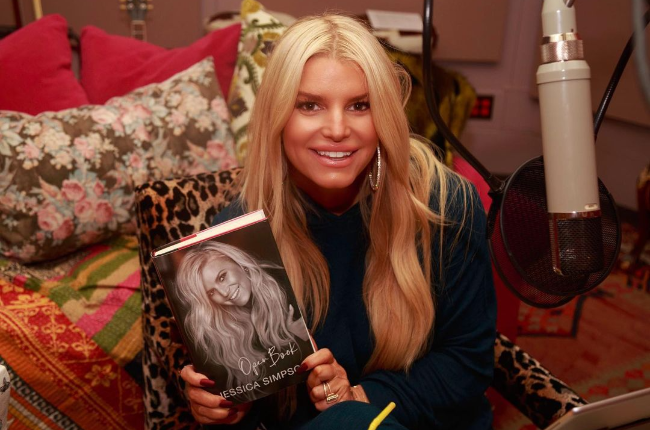
Actress Jessica Simpson has been praised for baring her battles with childhood trauma, addiction and body image in her bestselling memoir, Open Book. Now the actress is opening up about her dyslexia.
The Blonde Ambition actress released her biography in February and recently recorded an audiobook version. In a moving post, Jessica revealed she suffers from dyslexia after Open Book recently made it to the best-selling list on Apple Books. “@applebooks, thank you for recognizing and respecting my story,” Jessica said. Turning my fears into wisdom has been a soulful journey to say the least.”
Jessica (40) went on to reveal she has dyslexia, a learning disorder that affects your ability to read, write and speak. “Fact: I’m dyslexic and this was the first time I have ever read out loud without hesitation,” she wrote. “I did it for the listener. I did it for my family. I did it for myself.”
Jessica isn’t the first A-lister to reveal her
dyslexia diagnosis.
Harry Potter star Daniel Radcliffe also has a mild form of dyslexia, called dyspraxia, which makes it difficult for him to tie his shoelaces and write. Yet the diagnosis hasn’t prevented him from chasing his dreams, he says. “It has never held me back, and some of the smartest people I know are people who have learning disabilities,” Daniel told the Wall Street Journal.
“The fact that some things are more of a struggle will only make you more determined, harder working and more imaginative in the solutions you find to problems.”
Jennifer Aniston also revealed she’s dyslexic in 2015. It’s the reason she doesn’t read much, she told The Hollywood Reporter. And the diagnosis was life-changing. “I thought I wasn't smart. I just couldn't retain anything,” she said. “Now I had this great discovery. I felt like all of my childhood trauma-dies, tragedies, dramas were explained.”
In South Africa, one in 10 people are dyslexic. The condition can be debilitating if left untreated says Susan du Plessis of reading and learning centre Edublox. “I’ve often heard people say, ‘My child is lazy,’” she says.
“But you can’t judge your child if he has a reading problem.”
Tips on how to help your dyslexic child
- Once your child has been diagnosed, make sure you get the right help, says Susan. Ask the therapist what methods they’d use? What’s the theory behind them? What indicates success? “You should see visible results and an improvement in schoolwork. If not, the method may not be working for your child.”
- Develop a relationship with your child’s teacher, advises Cape Town educational psychologist Melissa Bothma. It opens up lines of communication to know how your child is faring academically.
- Make sure the child’s study area is conducive to learning. “It must be a clean, organised space in a quiet area of the house, with a desk and chair, sufficient light and the required stationery,” Bothma says.
- Show your love and support, she adds. “Emphasise and encourage other strengths or talents to ensure the child’s self-esteem isn’t affected.”
- Talk to the child about dyslexia. “A child who understands their learning disability will be better at coping with it.”
Sources: Instagram, Daily Mail, People, E News




 Publications
Publications
 Partners
Partners

















